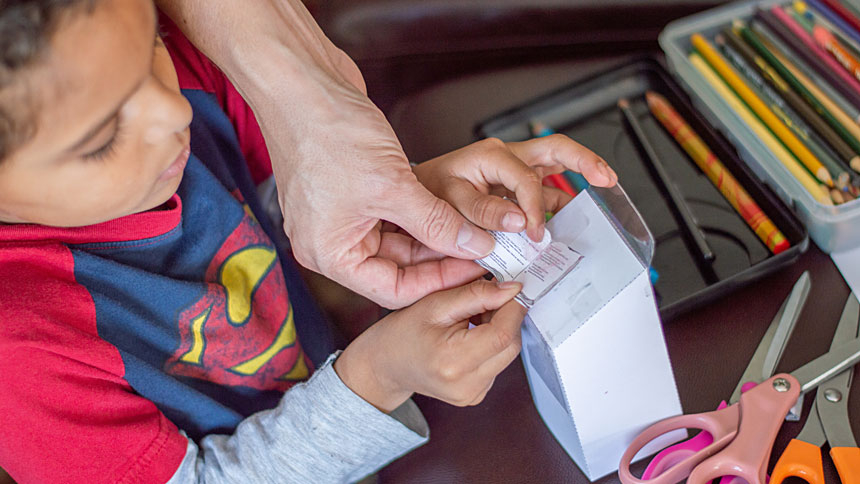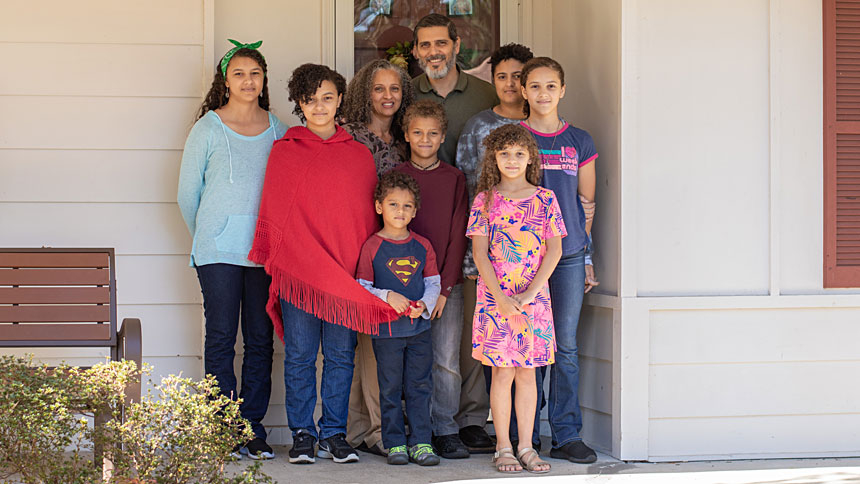
When the world went into lockdown, faith formation directors in the Diocese of Raleigh were faced with an important question -- How do we faithfully form next generation Catholics without sacrificing safety?
Their answer goes beyond masks, socially distanced gatherings, video conferences and hand sanitizer. While the directors were reminding Catholics in isolation who they are in Christ, they came to a striking revelation on what they should do next. Implement a new approach where faith formation starts in the home instead of a classroom.
“When parents are intimately involved in the spiritual formation of their children, parents and children alike become students of their faith,” says Meredith Drescher, director of Religious Education at All Saints Church in Hampstead.
She said their parish faced rough waters during Hurricane Florence when many parishioners were unable to come to church for Mass and faith formation classes.
It was then that parish leadership decided to lay a foundation for the future that would prepare their ministries in the case of an emergency. When the pandemic hit the United States in March, Drescher was able to build upon the infrastructure that was in place from Hurricane Florence and adapt it to fit their needs during lock down.
“At-home models have engaged parents here in Hampstead, while our online videos have been able to reach and educate Catholics all over the country” she says. “We even have a family in Hawaii attending our virtual baptism preparation class.”
The ministries at All Saints were lucky in some regard. Most parishes in the Diocese of Raleigh didn’t have a reason to have something in place like Drescher and the staff at All Saints, but instead had to rebuild their curriculum from the ground up. One of those parishes was St. Patrick Church in Fayetteville.
Wendy and Carlos Cortes are long-time parishioners there. And they’re mom and dad to 11 children -- seven of which are in faith formation classes through their church.
Monthly meetings were socially distanced and used to distribute lesson materials. Weekly lessons were moved out of the classroom and into the families’ homes. Even with all the recent changes, the Cortes family believes it’s for the betterment of Catholic family formation.
“There is greater responsibility on the parents’ part,” Carlos explains while he sets up for his family’s weekly lesson. “Parents are invested in their children’s development and progress because they’re the ones teaching them.”
St. Patrick is using Family Formation, a catechetical teaching resource for Roman Catholic churches and families that puts emphasis on the importance of the Mass and faith formation originating in the home.
Wendy and Carlos appreciate the curriculum because they’re able to meet and work at their own pace, put more time into lessons they feel need additional emphasis, and actively participate in their children’s spiritual formation.
“The children are more comfortable here,” Wendy says, motioning to her youngest, Joseph, 5, who is sitting on the floor nearby working on the lesson’s craft. “They participate more, answer questions and learn together.”
The Cortes family gathers together every Saturday after breakfast to do their lesson. The children sit in a half circle around their parents -- eager to answer questions, do the lesson craft, and look Bible verses up to supplement the information they’re learning. This week’s lesson is about the things that are used in the Mass, and the kids are busy cutting out and coloring images of things, such as the chalice.
Their third youngest, John Paul, gets up from his seat, walks to the fireplace hearth, sits down and begins to read from Corinthians. “As it is, these remain: Faith, hope and love, the three of them; and the greatest of them is love,” he says.
While the challenges of the pandemic are very real for children and their caregivers, it seems there are also remarkable adaptations happening at the same time. Faith formation directors have been challenged to use their resources and creativity in ways they've never had to before, and caregivers have been given the amazing opportunity to teach and watch their children grow spiritually.


